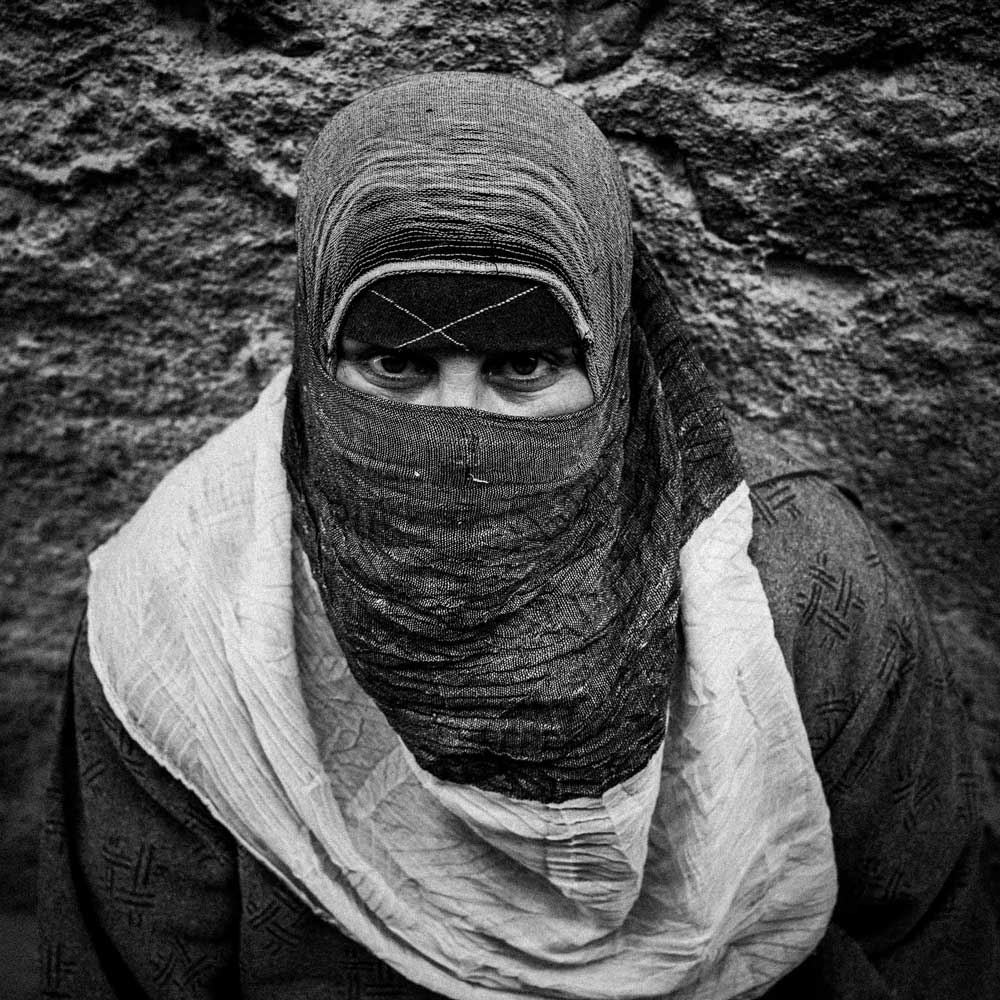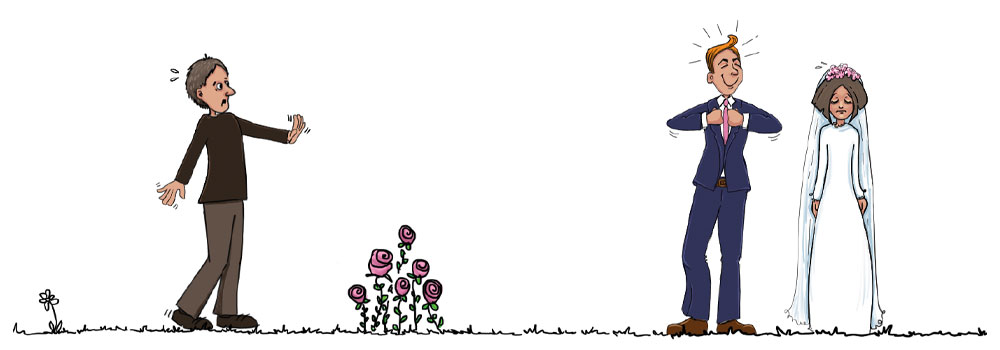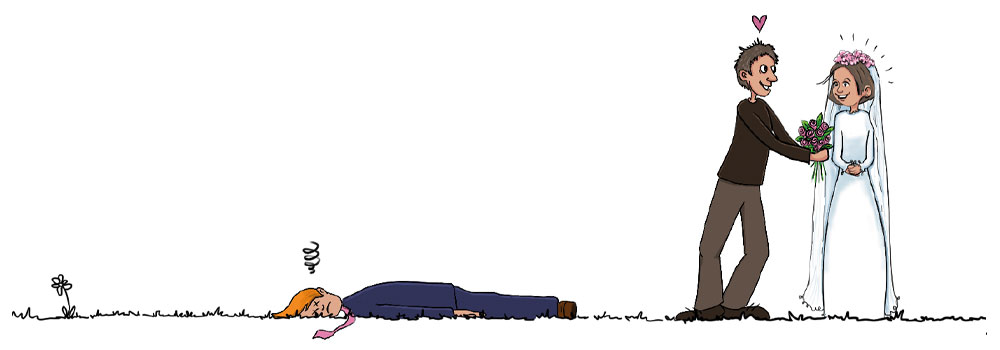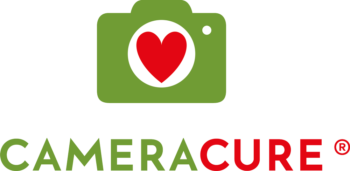Task 54 – Be bolder
Task 54
Become braver

Problem
Modesty
I remember well the main message for my family’s funeral speeches – the best thing that could be said about the deceased was that the person had been modest and hadn’t taken up unnecessary space. That was the ideal.
Whoever that came up with modesty being a virtue should have been punished. Life is not a zero -sum game where you take attention away from others. We all have something to gain from your contribution. Humility, on the other hand, is a virtue. I will return to it at the end of the book.
For me modesty has been a big obstacle. This is common among photographers. Why? It is probably due to a fear of being rejected. We are largely a group of shy, sensitive introverts. I thought that my modesty was useful: Because I appeared so to be reserved, lower expecta- tions were set for me. I didn’t have to worry about frightening challenges. Only afterwards did I realize how this held me back.
The worst consequence of being modest is that we rarely ask for help. We don’t want to be a burden on others. This has hindered many people from getting what they want. In addition to modesty, I had problems realizing what I could achieve by asking people for a long time. Fortunately, I have become better at this. And to my surprise I discovered that many people liked to be asked. It gives them only pleasure to be able to help. Maybe they feel important and get a little rush of serotonin.
On a scale of 1 to 6, how relevant is this issue for you?:

Solution
Bold courage
Some people find it easier to ask for help than others do and that includes at photography workshops. It wouldn’t cost them very much to ask one of us supervisors for guidance, or to ask a stranger if they could take a picture of them. The participants who balk at doing it are often afraid of being rejected. They feel uncomfortable each time they get “No” for an answer.
Even the way they ask can make the difference between getting a “Yes” and a “No”. If our body language signals that we feel we are being intrusive, it is easier for people to reject us. The trick is to be a little bold without being brash. We should think that it is to their advan- tage to get to know us and our project, that the experience will be positive for everyone concerned.
When you are going to ask someone something, lift your eyebrows, smile and look atten- tive and in a friendly way at them. Then it is more difficult for them to answer “No”. Try to ask as if you are expecting to hear “Yes”. You will discover that many of them will often help you out if they get the chance.
Practice asking systematically. Go into a store and ask the people working there where the soup is even if you already know. Ask someone in the street directions to the hardware store even if it is right behind you. Maybe the most important part of this asking exercise is getting practice at being rejected. Being told “No” will lead to a big dose of cortisol, but this rejection is not as dangerous as our mammalian brains think. Learn to tolerate the discomfort. Also smile to the ones who say “No” while thinking that they bring you closer to a “Yes”. Courage is contagious, observe brave people and allow your self to contract it.
PHOTO ASSIGNMENT:
Steel yourself to go out and do some asking. Ask if you can photograph someone you meet on the street, or their dog. Ask permission to take photos inside of a shop. If you think that it is too frightening to photograph a stranger, find people that you know.
On a scale of 1 to 6, how useful was this task for you?:
BOOK SUGGESTION: The Aladdin Factor by J. Canfield and M.V. Hansen

❞ It seems as if many people feel fear towards their own greatness and thus make themselves smaller than they are. It is almost like a little voice that says that it is time to give up, don’t go further, be satisfied, that this is enough.
Erling Kagge
❞ We live so briefly and are going to be dead a long time. Do we need to behave as if we were in a wait- ing room all the time?
Christine Koht
❞ Sometimes you just have to throw on a crown and remind
Marilyn Monroe
them who they’re dealing with.
[note_editor]

